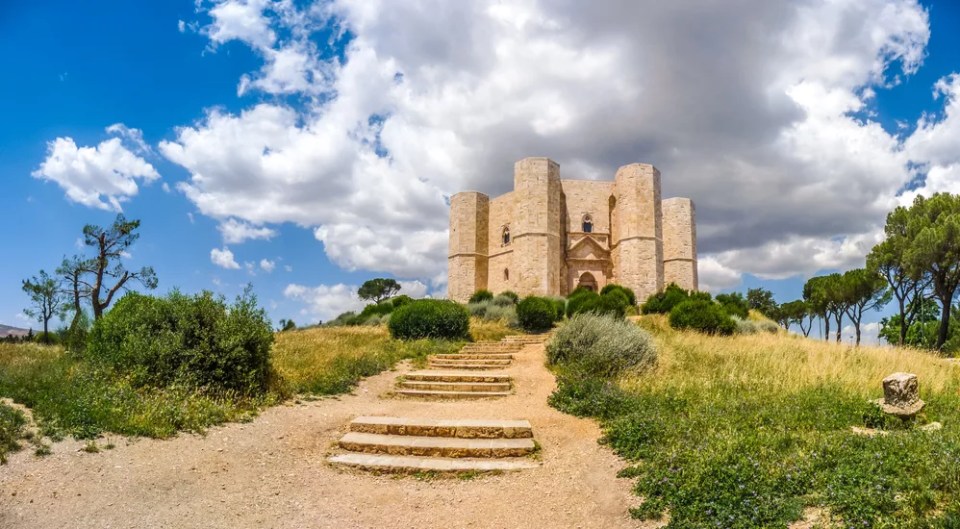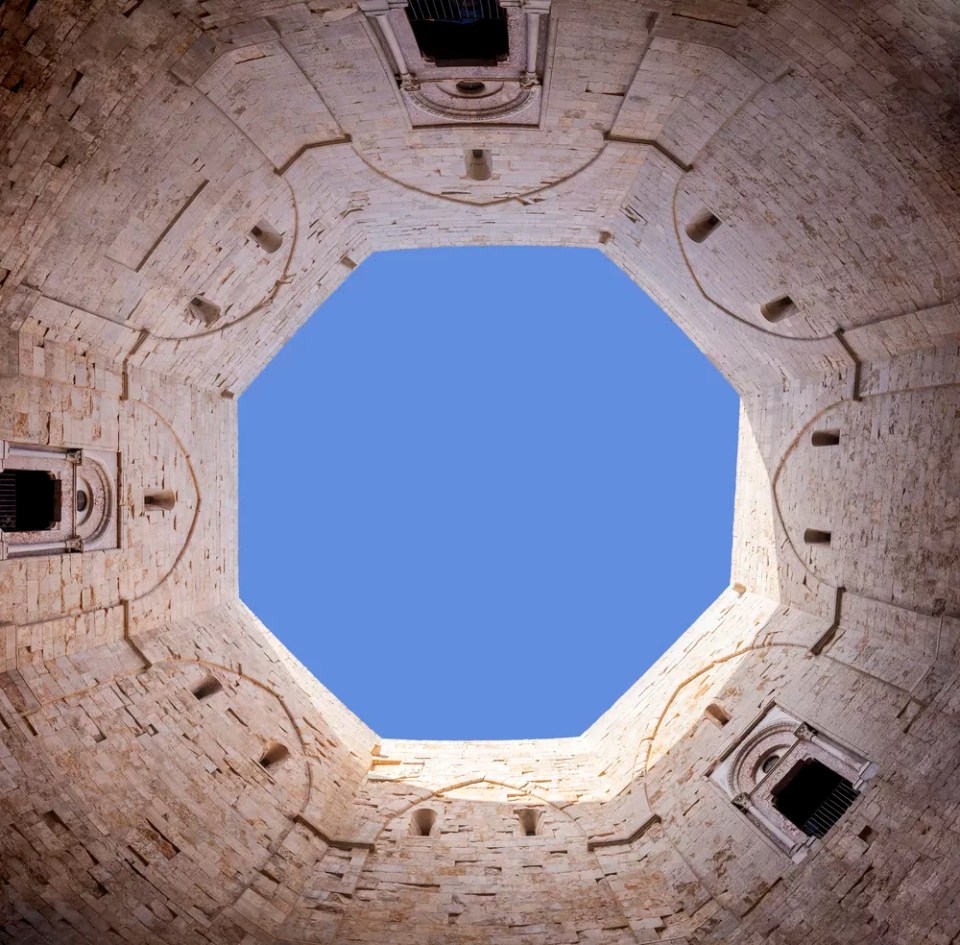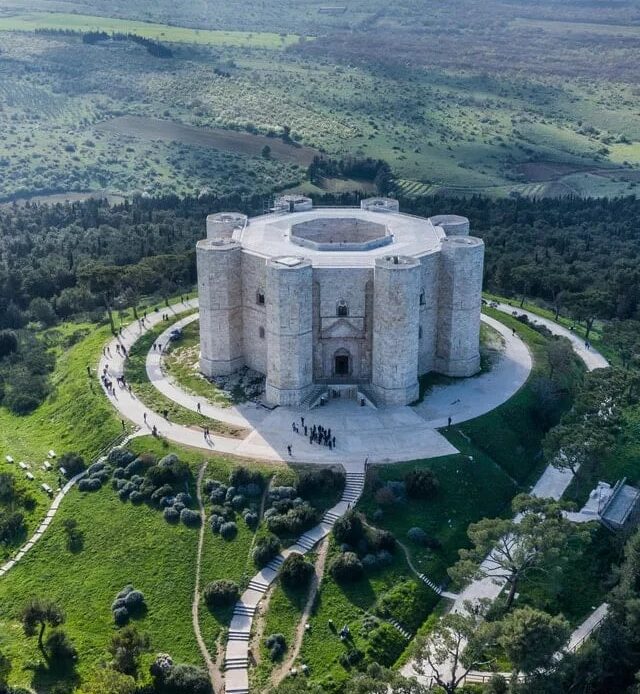Perched on a hilltop at an altitude of 540 meters, the medieval castle Castel del Monte proudly overlooks the comune of Andria in the Apulia region of Italy. Built by Holy Roman Emperor Frederick II in the 13th century, this unique fortress features an octagonal design, making it an architectural marvel of its time. Recognized as a UNESCO World Heritage Site in 1996, Castel del Monte is among the best-preserved medieval castles in Southern Italy.
Photo by reddit.com
History and Curious Facts
Constructed near Santa Maria di Monte Castro in 1237, Castel del Monte was part of a network of strategically placed defensive castles and residences commissioned by Frederick II. However, its design deviates from typical castles, as it lacks essential defensive features like ditches, a drawbridge, and a basement. Instead, it boasts large, marble-covered rooms indicative of a luxurious royal residence.
While the architect-builder remains unknown, the castle was built over the ruins of a preceding fortress, originally Norman and later of the Longobards. It has survived bombardment by the French in 1528, and in 1249, it hosted the wedding of King Frederick II’s daughter, Violante.

Beautiful view of Castel del Monte, the famous castle built in an octagonal shape by the Holy Roman Emperor Frederick II in the 13th century in Apulia, southeast Italy
Photo by depositphotos.com
Architecture and Design
Castel del Monte’s octagonal shape signifies the intermediate figure between a square, symbolizing earth, and a circle, representing the infinite sky. Its structure consists of two storeys, each with eight interconnected chambers. From its towers, one can access the roof terrace, which offers panoramic views that served as a strategic advantage during the Middle Ages.
Though the castle’s original decorations have been lost to looters and vandals, its doors still feature colored marble. Castel del Monte was constructed using limestone, white marble, and coral breccia, giving the walls a unique chromatic effect. Furthermore, the castle had an advanced plumbing system for its time, utilizing rainwater for toilets and bathrooms.

Sky seen in the courtyard of Castel del Monte. Apulia, Italy
Photo by depositphotos.com
UNESCO World Heritage and Cultural Significance
UNESCO acknowledged Castel del Monte as a “unique masterpiece of medieval military architecture” and a harmonious blend of elements from classical antiquity,…
Click Here to Read the Full Original Article at Unusual Places…
